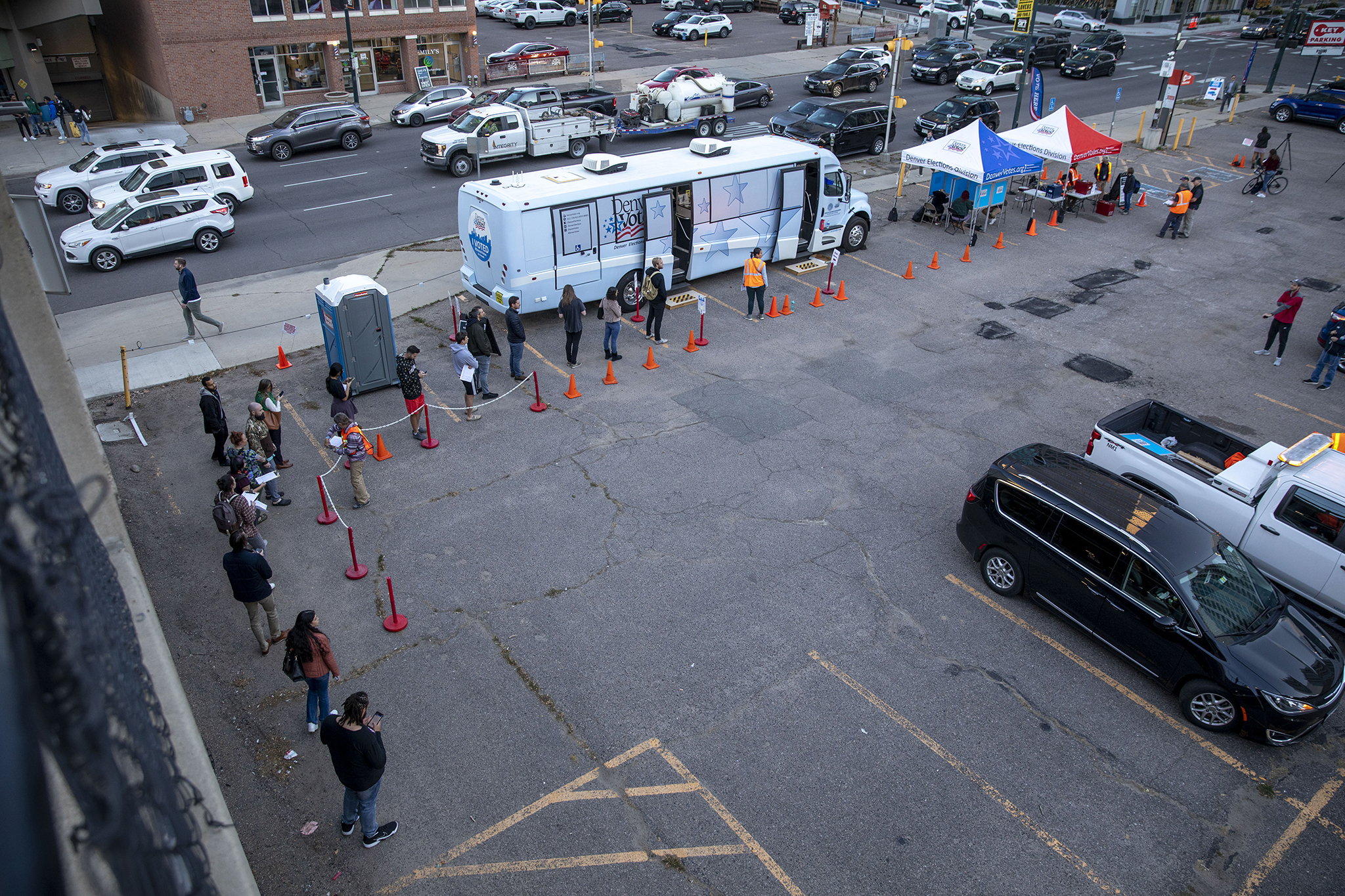‘The temperature has gone down a little bit’: Colorado’s clerks hope …

“They’re definitely going to continue to keep going and it really does just take one candidate to reignite it on a national level,” she said. “So we have to continue to be as proactive as we possibly can, continue to be strong in our association and relationship building, and just continue to be out there in the public and getting our message out there about what actually happens in an election.”
And while the political side of the Stop the Steal movement didn’t do well electorally in November, Becker warned there are still prominent figures feeding and sowing distrust and keeping the grassroots energy active.
“People who have spread these lies are lining their pockets with small donations from people who are good Americans, who are sincerely disappointed in the outcome of the 2020 and perhaps the 2022 elections,” he said. “They’re not insurrectionists, they’re not bad Americans because they voted for people other than the winner. But that disappointment is being fed into anger. It’s dividing us as a nation, and there are people who are profiting off that anger.”
The Tina Peters case has emphasized how important it is to educate clerks and be proactive
The clerks’ winter gathering is a time to share best practices and support each other, something that’s especially important this year, as about a third of Colorado’s clerks are new to their positions. Crane said it’s important to educate clerks and get in front of any disinformation that might come their way, something that’s been front and center with the high-profile case of former Mesa County Clerk Tina Peters.
Peters is scheduled to go to trial in March over allegations that she compromised her county’s voting machines in the search for evidence of election fraud. Crane said her actions have left clerks horrified and mad — Koppes describes what happened with Peters as the “biggest gut punch of my life” — but he said it taught the clerks even more about sticking together and the importance of helping educate their less experienced colleagues.
Crane said it’s like “there’s much more of a foxhole mentality” for those who’ve run elections in recent years.”
“We’re going to make sure that if you don’t know something, it’s okay to say, ‘I don’t know, but I’ll get you the answer.’ So people are much more diligent about that, doing research (and) sharing information that they have.”
As part of that education effort, Crane invited experts to the conference to explain how the state maintains accurate voter rolls, in part by participating in a multistate effort known as ERIC, or the Electronic Registration Information Center.
The non-profit allows states to share death records, motor vehicle data and other information to look for voters who have moved or died. But it’s been swept up in election conspiracy theories in recent years, and some on the right have tried to pressure states to drop out. The head of the organization spoke at the conference.
“So we thought this was a great opportunity — both for our clerks that have been here a while, and for our new clerks — to kind of get a refresher. ‘Okay, what is ERIC? What does it actually do? What does it not do? Where are these bad actors so obviously wrong about what happens with ERIC?’” Crane explained.
He said there’s always a lot of work to do, to ensure the voting system is as secure — and accessible — as possible.
This article has been archived for your research. The original version from Colorado Public Radio can be found here.


